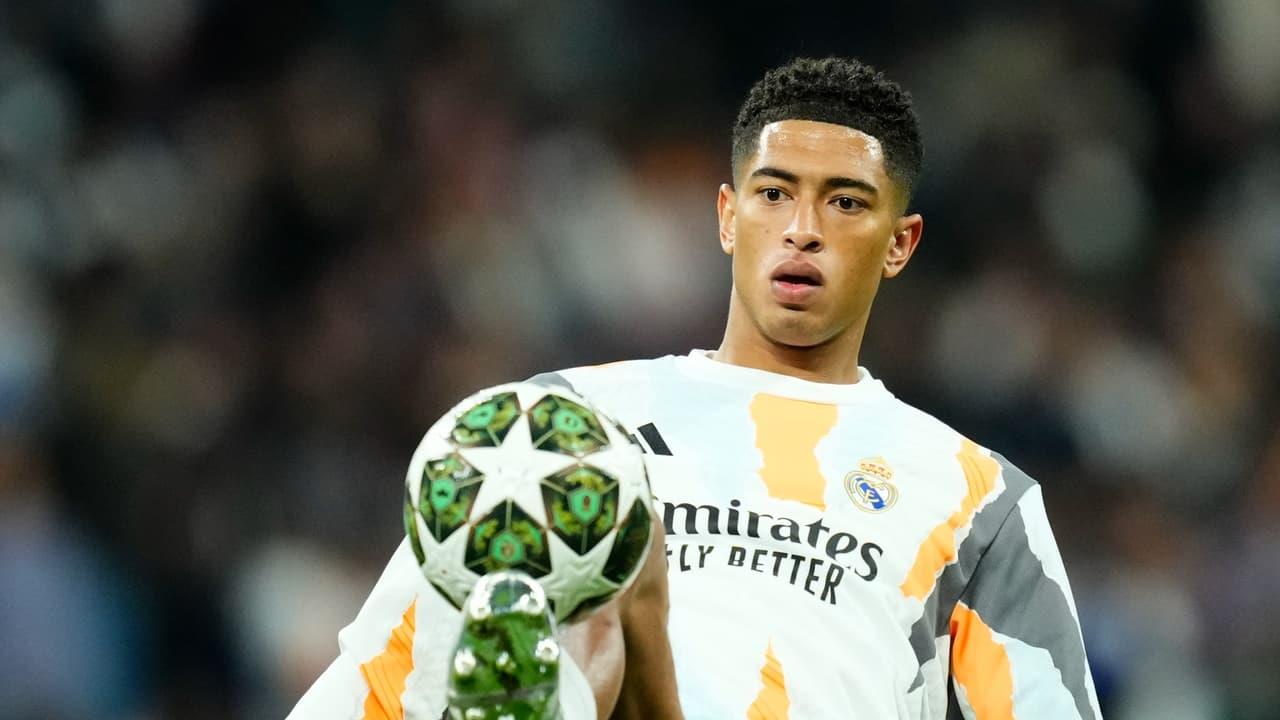
Real Madrid Star Jude Bellingham's BIG Admission: Why He Hid Behind A 'Macho' Athlete Image
Jude Bellingham opens up about the pressures of social media, maintaining a 'macho' image, and mental health struggles. The England star urges athletes to show vulnerability and break the stigma around discussing emotions.
Jude Bellingham, one of England's brightest football stars, has opened a window into the mental health challenges faced by professional athletes, revealing how he has long maintained a“macho” image to shield himself from vulnerability.
The Real Madrid midfielder, sidelined from England's latest international camp as he continues his recovery from a shoulder injury, spoke candidly about the emotional toll of elite sport and the societal pressures that surround it.
'There's still a stigma around talking about it. You'll feel a lot better for talking about your feelings and emotions' On World Mental Health Day, Laureus Ambassador Jude Bellingham reflects on his own mental health and the role athletes can play in driving a positive... twitter/z17SgDL7SQ
- Laureus (@LaureusSport) October 10, 2025
Bellingham explained how social media, while a tool for connection, can also magnify criticism and self-doubt, especially for young athletes.
"With the development of social media and technology, there's more ways to attack someone, to make them feel down," Bellingham said on World Mental Health as Laureus brand ambassador.
Reflecting on his own experiences, he admitted to using Twitter as a barometer for his self-worth as a younger player.
"As a young player at Birmingham City, I used to put my name into Twitter and read everything. But even if the comments were positive, I quickly decided: Why should I let the opinion of people who don't know me validate how I think about myself?"
He added that he now avoids reading his own social media, recognizing the unnecessary negativity it can bring.
"There's also the negative element that I've now decided to avoid – and I know a lot of other athletes who also have. There's enough negativity and pressure in professional sport that you don't need to seek it out."
Bellingham reflected on the lingering stigma around mental health in football and society at large, admitting that he has often tried to maintain a tough exterior.
"I know there's been times where I've felt vulnerable, doubted myself and needed someone to talk to - and, instead, I've tried to keep up this macho athlete image of, 'I don't need anyone.' The truth is that I do, everyone does. And you'll feel a lot better from talking about your feelings and emotions."
The 22-year-old midfielder highlighted the importance of breaking down the perception that athletes are invincible.
"As athletes, it seems like we have the world at our feet or hands - we can do whatever we want, earn so much money and never be affected by it. But the reality is, if we can show vulnerability, then it opens up a bigger conversation for people who are struggling in the darkness. It's the duty of people like me - and the positions we're in - to be role models."
Bellingham also criticized the outdated expectation that athletes must remain stoic in the face of adversity.
"I still think athletes are seen as people who should shut up and take it, which is an old-fashioned outlook. That hate can be really tough for athletes - and I can really empathise with those who struggle with their mental health. Everyone is allowed their opinion on sport, but there should be limits to the horrible things you can say."
Bellingham's openness comes amid comparisons with peers like Phil Foden, who has publicly discussed off-field struggles that impacted his season last year, earning praise from Manchester City manager Pep Guardiola for his courage.
The England star himself has faced criticism over the past 12 months, particularly after England's run to the 2024 European Championship final, where he felt unfairly scapegoated. Yet, veteran Jordan Henderson has defended him, calling Bellingham a“world-class person.”
"I've never been in a deep hole mentally, but I've been around people who have, and it's sad to see," Bellingham said.
Through his role as a Laureus ambassador, Bellingham is using his platform to encourage honest conversations about mental health in sport. By sharing his own experiences, he hopes to normalize vulnerability for younger players and fans alike.
"If we can show vulnerability, then it opens up a bigger conversation for people who are struggling in the darkness," he stressed.
In an era where public scrutiny can be relentless, Bellingham's message is clear: athletes are human, and acknowledging that humanity is not a weakness-it's an opportunity to lead with authenticity and empathy.
Legal Disclaimer:
MENAFN provides the
information “as is” without warranty of any kind. We do not accept
any responsibility or liability for the accuracy, content, images,
videos, licenses, completeness, legality, or reliability of the information
contained in this article. If you have any complaints or copyright
issues related to this article, kindly contact the provider above.

















Comments
No comment